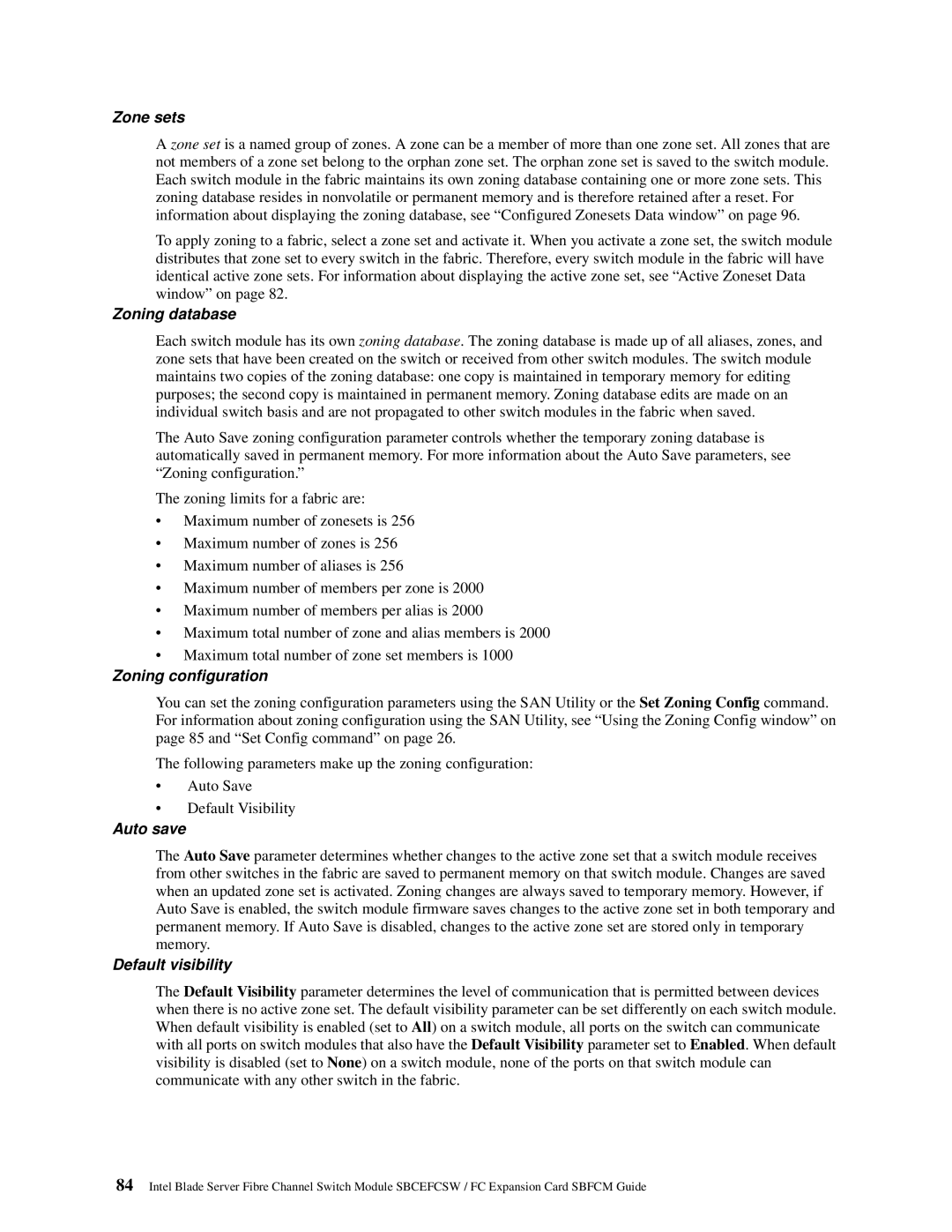Zone sets
A zone set is a named group of zones. A zone can be a member of more than one zone set. All zones that are not members of a zone set belong to the orphan zone set. The orphan zone set is saved to the switch module. Each switch module in the fabric maintains its own zoning database containing one or more zone sets. This zoning database resides in nonvolatile or permanent memory and is therefore retained after a reset. For information about displaying the zoning database, see “Configured Zonesets Data window” on page 96.
To apply zoning to a fabric, select a zone set and activate it. When you activate a zone set, the switch module distributes that zone set to every switch in the fabric. Therefore, every switch module in the fabric will have identical active zone sets. For information about displaying the active zone set, see “Active Zoneset Data window” on page 82.
Zoning database
Each switch module has its own zoning database. The zoning database is made up of all aliases, zones, and zone sets that have been created on the switch or received from other switch modules. The switch module maintains two copies of the zoning database: one copy is maintained in temporary memory for editing purposes; the second copy is maintained in permanent memory. Zoning database edits are made on an individual switch basis and are not propagated to other switch modules in the fabric when saved.
The Auto Save zoning configuration parameter controls whether the temporary zoning database is automatically saved in permanent memory. For more information about the Auto Save parameters, see “Zoning configuration.”
The zoning limits for a fabric are:
•Maximum number of zonesets is 256
•Maximum number of zones is 256
•Maximum number of aliases is 256
•Maximum number of members per zone is 2000
•Maximum number of members per alias is 2000
•Maximum total number of zone and alias members is 2000
•Maximum total number of zone set members is 1000
Zoning configuration
You can set the zoning configuration parameters using the SAN Utility or the Set Zoning Config command. For information about zoning configuration using the SAN Utility, see “Using the Zoning Config window” on page 85 and “Set Config command” on page 26.
The following parameters make up the zoning configuration:
•Auto Save
•Default Visibility
Auto save
The Auto Save parameter determines whether changes to the active zone set that a switch module receives from other switches in the fabric are saved to permanent memory on that switch module. Changes are saved when an updated zone set is activated. Zoning changes are always saved to temporary memory. However, if Auto Save is enabled, the switch module firmware saves changes to the active zone set in both temporary and permanent memory. If Auto Save is disabled, changes to the active zone set are stored only in temporary memory.
Default visibility
The Default Visibility parameter determines the level of communication that is permitted between devices when there is no active zone set. The default visibility parameter can be set differently on each switch module. When default visibility is enabled (set to All) on a switch module, all ports on the switch can communicate with all ports on switch modules that also have the Default Visibility parameter set to Enabled. When default visibility is disabled (set to None) on a switch module, none of the ports on that switch module can communicate with any other switch in the fabric.
84Intel Blade Server Fibre Channel Switch Module SBCEFCSW / FC Expansion Card SBFCM Guide
